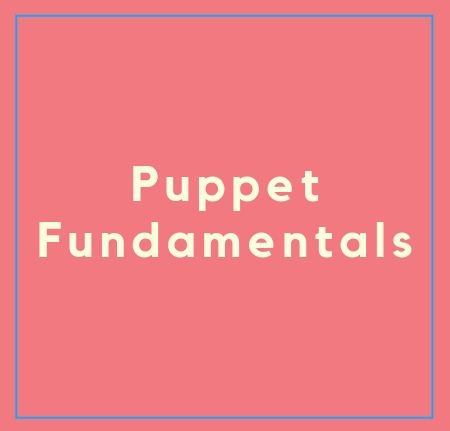
Puppet Fundamentals Training Introduction:
Puppet Fundamentals Training in IdesTrainings helps students to get skill in Puppet modern automation, Puppet usage, Puppet framework, including Puppet specialists and bosses, at that point, bounce into the Puppet run cycle. From that point, will show you the Puppet language, including how to apply a basic Puppet mainfest, Puppet types, and applying restrictive logic in Puppet. This course likewise covers how to compose a Puppet environment, report with Puppet, and MCollective. At long last, you will find out about extra devices, for example, external node classifiers and detailing with the Puppet dashboard. IdesTrainings Provides the Best Puppet Fundamentals Online Training with reasonable cost. Come and join now!
Prerequisites of Puppet Fundamentals Training:
Participants must be well-known with general Linux system administration
Puppet Fundamentals Online Training Course Details:
- Course Name: Puppet Fundamentals Training
- Mode of training: Online Training and Corporate Training (Classroom Training)
- Duration of course: 30 hrs
- Do you provide materials: Yes, if you register with IdesTrainings, the materials will be provided.
- Course fee: After register with IdesTrainings, Our coordinator will contact you.
- Trainer experience: 14 years+
- Timings: According to one’s feasibility
- Batch Type: Regular, weekends and fast track
PUPPET FUNDAMENTALS TRAINING COURSE CONTENT

Puppet Fundamentals Training Overview:
Puppet is created by Puppet labs, established by Luke Kanies in 2005. It is written in Ruby and discharged as free programming under the GNU General Public License (GPL) until version 2.7.0 and the Apache License 2.0 after that.
Puppet is intended to deal with the design of Unix-like and Microsoft Windows frameworks definitively. The client depicts frameworks assets and their state, either utilizing puppet’s declarative language or a Ruby DSL (Domain Specific Language).
What is Puppet?
The Puppet is an open-source configuration management tool, written in Ruby. A puppet is a special way to deal with IT computerization for finding, arranging, and dealing with your foundation. Puppet empowers framework executives and DevOps to work quicker and more brilliant.
Why Puppet?
We use puppet in light of the fact that the puppet is setup the management device which is more dominant than encourages framework heads to computerize the provisioning, design, and the board of server foundation. Puppet empowers framework directors and DevOps to work quicker and more astute.
Puppet Architecture:
Puppet Master:
Puppet Master is the key system which handles all the design related stuff. It applies the design to hubs utilizing the Puppet agent.
Puppet Agent:
Puppet Agents are the real working machines which are overseen by the Puppet master. They have the Puppet operator daemon administration running inside them.
Config Repository:
This is the repo where all hubs and server-related arrangements are spared and pulled whenever required.
Facts:
Facts are the subtleties identified with the hub or the master machine, which are essentially utilized for investigating the present status of any hub. Based on certainties, changes are done on any objective machine. There are pre-characterized and custom actualities in Puppet.
Catalog:
All the show records or design which are written in Puppet are first changed over to a gathered arrangement considered list and later those lists are connected on the objective machine.
Learn about Puppet Key Components in Puppet Fundamentals Training:
Puppet Resources:
Puppet resources are the key segments for displaying a specific machine. These assets have their own usage model. Puppet utilizes a similar model to get a specific asset in the ideal state.
Providers:
Providers are essentially fulfillers of a specific asset utilized in Puppet. For instance, the bundle type ‘apt- get’ and ‘yum’ both are substantial for bundle the executives. Once in a while, more than one supplier would be accessible on a specific platform. Despite the fact that every stage consistently has a default supplier.
Manifest:
The Manifest is a gathering of assets which are coupled inside the capacity or classes to arrange any objective framework. They contain a lot of Ruby code so as to arrange a framework.
Modules:
The module is the key structure block of Puppet, which can be characterized as a gathering of assets, documents, layouts, and so forth. They can be effectively conveyed among various types of Operating system being characterized that they are of a similar flavor. As they can be effectively disseminated, one module can be utilized on different occasions with a similar arrangement.
Templates:
Templates utilize Ruby articulations to characterize tweaked substance and variable info. They are utilized to create custom substance. Templates are characterized in shows and are duplicated to an area on the framework.
Static Files:
Static records can be characterized as a general document which is now and again required to perform explicit undertakings. They can be essentially replicated starting with one area then onto the next utilizing Puppet. Every static record is situated inside the document’s catalogue of any module. Any control of the record in a show is finished utilizing the document asset.
Who is the Right person to learn this course?
This course is intended for Linux/Unix users.
What are the Puppet Fundamentals Course Objectives?
After completing this Puppet Fundamentals course, aspirants will probably deploy fundamental framework designs utilizing best rehearses for Puppet in a Master-Agent arrangement.
Conclusion of Puppet Fundamentals Training:
IdesTrainings gives the best online training, corporate training and job support for Puppet Fundamentals. We have the best trainers to manage you through this Puppet Fundamentals Online Course and numerous different courses; in our Idestrainings and just as, for both individual and for corporate bunches too. Our trainers will be available 24/7 online support. We also provide Puppet Training with reasonable price. IdesTrainings gives training to all DevOps Modules at a sensible cost and at trainee’s adaptable hours? We likewise give classroom training at customer premises Noida, Bangalore, Gurgaon, Hyderabad, Mumbai, Delhi, and Pune.

